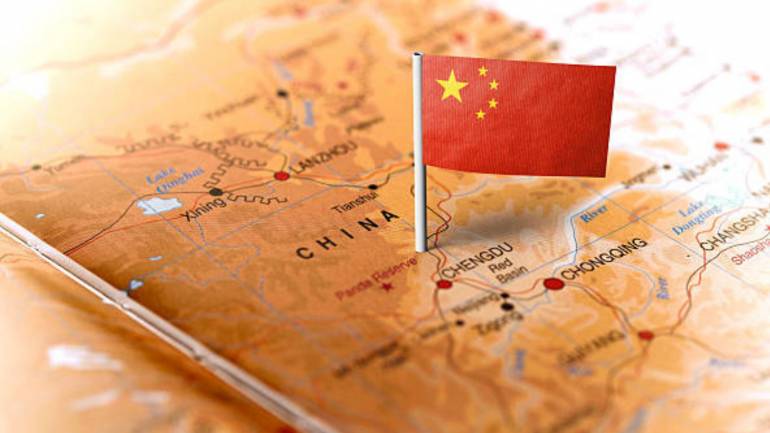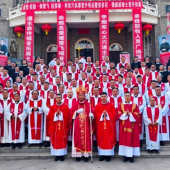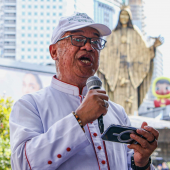China's Catholic Church pledge to support the Chinese Communist Party

Two state-sponsored church bodies in China elected leaders at a national conference in Wuhan and pledged to align the Chinese Church with Communist Party ideology.
On August 18, the 10th National Congress of Catholicism in China was held in Wuhan, the capital of Hubei Province in central China, and 345 Catholic bishops, priests, and religious groups gathered for three days in Wuhan.
According to Cui Maohu, director of the State Administration of Religious Affairs, "the government fully endorsed the activities of the Bishops' Conference of the Catholic Church in China (BCCCC) and the Chinese Catholic Patriotic Association (CCPA) over the past six years, emphasizing their loyalty to the party leadership and commitment to the nation."
Deputy Minister Cui emphasized that Chinese Catholics have consolidated their ideological and political leadership since the 9th National Congress in Beijing in 2016, adhered to the path of independent and self-run churches, promoted Chinese theological ideas and cultivated patriotism to strengthen the Chinese Catholic faith.
He added that Chinese Catholics are passionate about teaching and church talents, strongly involved in social service, and committed to strengthening their own identity.
Huang Bingzhang Huang presented a report explaining the recent revisions to the "One Council, One Mission" constitution of the CCPA.
Chinese culture and society have indigenized religious faith, practice, and ritual following the Lausanne Academic Movement.
The CCP promotes sinicization as a deeply political ideology based on socialism, autonomy, and supporting CCP leadership.
Chinese Catholic bishop Shen Bin emphasized that the Chinese Catholic Church has always followed the correct political direction.
He cultivated high patriotism and love for religion among its priests, elders, and faithful, and built a solid foundation for independence and independent churches across the country.
Having a Sino-Catholic presence in China, Bishop Shen said, would allow the Church to accomplish effective catechesis, advance pastoral evangelization, and be actively involved in social welfare and charity.
Chinese Catholics will completely implement the spirit of last December's National Conference on Religious Affairs within five years, Bishop Shen said.
President Xi Jinping stressed the implementation of Marxist policies, increased surveillance online, and tightening control of religion during the conference on December 3–4.
Buddhist, Taoist, Islamic, Catholic, and Protestant religions are recognized as legal in Communist China, an officially atheistic country.
To be legally recognized by the state, religious groups must register with the government and strictly follow regulations.
Any violation of these rules and policies carries a fine, an arrest, and the closing of religious groups and activities.
The Chinese government severed diplomatic ties with the Vatican in 1949 and formed the Catholic Church Control Association (CCPA) in 1957 to control the Catholic Church.
During the underground Catholic movement, the pope and the universal Church continued to be regarded as sacred.
About 12 million Catholics live in China, spread between the underground and patriotic churches, according to independent researchers.
To resolve the bishop appointment dispute between Beijing and the Vatican, the Sino-Vatican Agreement of 2018 was signed and renewed in 2020.
Radio Veritas Asia (RVA), a media platform of the Catholic Church, aims to share Christ. RVA started in 1969 as a continental Catholic radio station to serve Asian countries in their respective local language, thus earning the tag “the Voice of Asian Christianity.” Responding to the emerging context, RVA embraced media platforms to connect with the global Asian audience via its 21 language websites and various social media platforms.














